
Lawsuit Reform: The Quest Never Ends
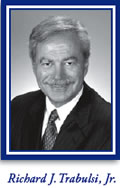
Last year was one of the most challenging that we have experienced in our long battle to make the Texas civil justice system fair and balanced. In the 2008 election cycle, wealthy personal injury trial lawyers poured over $8 million into state legislative races in an effort to elect lawmakers who would roll back the lawsuit reforms that have strengthened our economy and expanded access to healthcare in our state. Nevertheless, TLR’s Political Action Committee and its allies were successful in preserving pro-reform majorities in both chambers of the Texas Legislature.
TLR PAC played key roles in Democratic and Republican primaries in March and in the general election in November. For example, we supported Marisa Marquez and Tara Rios Ybarra, two energetic young women who defeated incumbents in Democratic primaries. TLR PAC helped Rep. Betty Brown defeat a well-funded personal injury trial lawyer in a Republican primary to win her sixth term in the House. In the general election, TLR PAC endorsed 123 legislative candidates, 113 of whom won.
Just before Christmas, tort reformers concluded the election season with a critical victory in Houston’s Texas Senate District 17 run-off election. Joan Huffman, a former prosecutor and criminal court judge, defeated Chris Bell, who has received millions of dollars in campaign contributions from trial lawyers during his political career.
These victories at the ballot box reflect the priorities and values of Texans. Our most recent polling finds that a large majority of Texans continue to support lawsuit reform, including almost 60 percent who believe additional reforms should be enacted to correct lawsuit abuses in the system.
We know that the legislative session this year will require our vigilance. Plaintiff lawyers have pledged to use their wealth to reverse lawsuit reforms in states across the nation. We are confident that the dedication of committed legislators and the strength of our grassroots supporters will counter any challenge to the lawsuit reforms that are boosting the Texas economy and increasing access to healthcare for every Texan.
Sincerely,
Richard J. Trabulsi, Jr., President
Rios Ybarra and Shelton Bring Healthcare Expertise to Texas Legislature
Because healthcare is one of the most critical issues facing our state, the election of two practicing medical professionals in November – Dr. Mark Shelton and Dr. Tara Rios Ybarra – is good news for every Texan concerned about good public policy.
Rep. Shelton, a Fort Worth Republican, is a pediatrician and infectious disease specialist and Rep. Rios Ybarra, a South Texas Democrat, is a dentist who has pioneered indigent care programs in her community. Both share a commitment to the lawsuit reforms that have increased the number of doctors in our state and expanded access to healthcare throughout Texas.
“Before lawsuit reforms were enacted, my colleagues were leaving Texas, closing their practices or changing their practices,” Shelton said. “Now we are taking care of patients.”
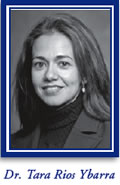
Rep. Rios Ybarra has witnessed the dramatic expansion of access to healthcare in South Texas. Her new district includes Cameron County, one of 76 medically underserved metropolitan counties that have gained emergency room doctors since the passage of medical liability reforms in 2003.
“Lawsuit reform made an immediate impact in my district. In addition to increasing access to care, providers became more positive because the doctor-patient relationship finally could be rebuilt,” Rios Ybarra said. “That trust, which is critical to care, returned.”
It is hard to underestimate the impact of lawsuit reform in Texas. Texas has licensed 14,496 new physicians since medical liability reforms were passed in 2003. Last year, a record 3,621 were licensed – a 9% increase over the previous year.
“When I was campaigning this fall, voters spoke to me again and again about this issue. They told me repeatedly that they were happy to be able to have their own doctor again,” Rios Ybarra said.
A survey conducted by the Texas Medical Association last year echoed the experiences of Reps. Shelton and Rios Ybarra. According to their findings, Texas healthcare practitioners reported massive cutbacks in services they offered to their patients before the passage of liability reforms in 2003. With the growth in the number of doctors practicing in the state, those trends have been dramatically reversed. Perhaps most importantly, many healthcare providers report they are providing more charity care, participating in volunteer programs, and accepting more Medicaid and Medicare patients because of the liability reforms. They also are adding new in-office procedures and testing, nursing home coverage, and after-hours services.
Medical liability reform stopped the exodus of doctors from Texas and continues to increase access and healthcare options to Texas families throughout the state.
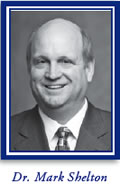
Dr. Mark Shelton represents Texas House District 97, located in southwest Tarrant County. It includes Benbrook, Edgecliff Village and parts of Fort Worth.
Since 1988 Dr. Shelton has served as Director of the Pediatric Infectious Diseases Program at Cook Children’s Medical Center. He was in charge of the Hospital Infection Control Program, the Pediatric AIDS Program, the Infectious Diseases Clinical Research Program and served as the Director of the Pediatric Infectious Diseases Consultation Service. He was also Vice-President of the Cook Children’s Physician Network during its inception and served on the Cook Children’s System Board.
Dr. Shelton received his Doctor of Medicine degree from Texas A&M University College of Medicine (now the Texas A&M Health Sciences Center). He double boarded in Pediatrics and Pediatric Infectious Diseases.
Dr. Tara Rios Ybarra represents Texas House District 43, which includes portions of Cameron, Kenedy, Brooks, Jim Hogg, Kleberg and Willacy Counties.
She graduated from the Dental School at the University of Texas Health Science Center in San Antonio with a Doctorate of Dental Surgery. She completed a Forensic Odontology Fellowship at The University of Texas Health Science Center in 2002, which presented her with the opportunity to serve on the 9-11 World Trade Center Odontology Team. She has practiced dentistry since 1997 and has owned her own practice for the last nine years.
Dr. Rios Ybarra’s community efforts include working on improving indigent healthcare through the free indigent dental care mobile unit and sitting on the board of the Family Crisis Center, which works to end domestic violence. Dr. Tara Rios Ybarra also serves as a Dental Consultant for the U.S. Department of Home Land Security Bureau of Immigration and Customs Enforcement.
Meet Texas House Speaker Joe Straus

Speaker Straus, who was first elected to the House in 2005, is a principal in the insurance and executive benefits firm of Watson, Mazur, Bennett & Straus, L.L.C. He is affiliated with National Financial Partners, a leading financial services company in the insurance, investments, and benefits industry.
During the 2007 legislative session, Speaker Straus served on the Committee on Economic Development as Vice-Chairman and the Committee on Regulated Industries. Speaker Straus is a business leader and an advocate of strong economic development policies.
“I believe a fair and balanced civil justice system is key to maintaining a healthy Texas economy and making certain all Texans have full access to doctors and medical care,” Straus said.
A lifelong Republican, Speaker Straus served in the administration of President George H. W. Bush from 1989 through 1991 as deputy director of Business Liaison at the U.S. Department of Commerce and also in the Reagan administration as executive assistant to the Commissioner of Customs. In 1986, he was U.S. Representative Lamar Smith’s campaign manager in Mr. Smith’s first race for Congress.
Speaker Straus is a graduate of Vanderbilt University with a B.A. in Political Science. He is an avid sportsman with a lifelong passion for thoroughbred breeding. He is married to Julie Brink Straus. They have two daughters, Sara and Robyn.
Thank You Tom Craddick
Out-going Speaker Tom Craddick presided over the Texas House when a series of landmark lawsuit reforms were passed that have increased access to healthcare throughout the state and helped make the Texas economy the strongest in the nation.
Under Speaker Craddick’s leadership, Texas instituted historic asbestos litigation reform and the comprehensive medical liability reforms that have stopped the exodus of doctors from our state and generated millions in additional funds for charity care. In his first session as House Speaker, Mr. Craddick was instrumental in the passage of House Bill 4, the most comprehensive civil justice reform in American history.
“Speaker Craddick’s commitment to a fair and balanced civil justice system has made a positive and historic difference in the direction of our state. TLR is very grateful for his leadership,” said Richard Weekley, Chairman and CEO of Texans for Lawsuit Reform.
81st Legislature: Civil Justice Priorities
TLR has worked with the Texas Legislature over the past 15 years to pass a series of prudent and effective lawsuit reforms that have largely restored balance and fairness to the Texas civil justice system and engendered wider trust among our citizens in the fairness of our litigation system.
These reforms have strengthened the Texas economy, enabling our people to innovate, our businesses to expand, our citizens to have jobs, and our government entities to have strong tax revenue to support education, healthcare and other government programs and activities. Healthcare throughout our State is much more accessible due to medical liability reforms passed in 2003. The physician shortage has largely ended and doctors are now coming to Texas in record numbers.
Personal injury trial lawyers want to roll back lawsuit reforms and reverse these gains. They have proposed a number of pieces of legislation that attack the basic principals of lawsuit reform and would overturn important rulings of our appellate courts. Their goal is to create new opportunities for litigation. These efforts, if successful, would damage our legal system and our economy’s ability to compete, innovate, grow, and produce jobs for Texans.
Below is a brief description of a few of the major trial lawyer proposals we oppose and why we oppose them:
- SB 1119: The “Paid or Incurred” Provision of HB 4:The Civil Practice and Remedies Code limits recovery of medical or healthcare expenses to the amount actually paid or incurred by or on behalf of a claimant. The Omnibus Tort Reform Act of 2003 (HB 4) recognized the reality of medical provider billing, in which the full amount billed by a provider, such as a hospital, is almost never the amount actually due or paid. The plaintiff ’s lawyers want to change that and return to the days when they could obtain a judgment for amounts that were charged by a provider, but have not been paid and never will be paid by anyone. We call these “phantom damages.” Plaintiffs, under current law, can get verdicts for amounts actually paid or owed to a healthcare provider, including all estimated future medical expenses. This law should not be changed.
- HB 520 and HB 1657: The Entergy Decision, Workers Compensation, and Statutory Employer:HB 520 and HB 1657 both seek to overturn the unanimous Texas Supreme Court decision in Entergy Gulf States vs. Summers, which basically holds that a premises owner can act as its own general contractor and provide a workers’ compensation policy for all workers on the worksite, which then allows injured workers to be compensated for lost wages and medical expenses through the workers compensation system rather than a lawsuit. Workers’ compensation systems have been in place throughout the nation for many decades. The policy allows injured workers to obtain immediate compensation for wages and medical expenses without the time delay, expense and uncertainty of a lawsuit. The injured worker gets full benefits even if the worker’s own negligence contributedpartly or entirely to his or her injury. TLR believes the Entergy decision is well reasoned and correctly decided.If the 81st Legislature decides to address the issues raised by the Entergy decision then TLR suggests that the best approach would be to enact a statutory employer statute that would place all workers at a worksite under a single workers’ compensation policy, thereby eliminating the large fractional costs of third-party lawsuits. The substantial savings to the workers’ compensation system could be invested in better safety programs for workers and increased compensation benefits to the most seriously injured workers. It would be a mistake to pass HB 520, HB 1657 or other “anti-Entergy” bills. If there is a problem in this area of public policy, it would best be solved by a comprehensive reform such as statutory employer.
- SB 1123 and HB 1811: Asbestos Litigation – Causation & Evidentiary Matt ers Related to Mesothelioma Cases:In 2005, the Legislature passed SB 15, the most effective solution in the nation to the abusive asbestos litigation that has destroyed tens of thousands of American jobs and bankrupted over seventy companies. SB 15 has proven effective in achieving its laudable goals. First, the mass x-ray screening and bundling of claims for unimpaired persons has ended. Secondly, the truly sick are getting redress through the courts. Personal injury trial lawyers seek to end that progress with two separate pieces of legislation. SB 1123 deals with causation and evidentiary issues in asbestos claims involving mesothelioma, a rare cancer that can be caused by inhaling asbestos. The bill would reverse two well-reasoned appellate opinions, Borg Warner v. Flores (Texas Supreme Court, in an 8-0 decision) and Georgia Pacific v. Stephens (1st Court of Appeals, in a 3-0 decision). These decisions establish standards of causation and evidence that are consistent with traditional tort law and evidentiary principles. SB 1123 and HB 1811 would decimate those standards (as well as the sensible “junk science” standards established by Texas courts) and create what may be the weakest causation and evidentiary standards in the United States in mesothelioma cases.
- SB 496: Qui Tam:Qui tam is a Latin legal term describing a civil action brought by a private party on the government’s behalf. In a qui tam suit, an individual having knowledge of false or fraudulent claims on the government can sue on behalf of the government and receive a bounty from any recovery in the lawsuit. Due to federal mandates in the funding of Medicare/Medicaid, Texas has already adopted a qui tam statute for fraud in those areas.SB 496 would create a general-purpose qui tam law in Texas. The experience with the federal general-purpose qui tam statute shows that it can be badly abused, causing businesses unproductive expenditures to defend against cases that are not meritorious. One mass tort law firm in Texas that was notorious in mass-asbestos claims (now foreclosed by SB 15) has recently opened a qui tam practice. If there is concern about fraud against state government, a better, pro-active approach is to have a state inspector general focused on preventing and uncovering fraud, rather than enacting a new statute that invites litigation and causes the State to share recoveries with outside lawyers.
This legislation is a clear effort by the lawsuit industry to create a new arena for lawsuits.
- SB 222: Arbitration:Trial lawyers are attacking arbitration throughout the nation. SB 222 would destroy the right to contract for arbitration as an alternative form of dispute resolution in many kinds of cases, even among sophisticated parties and force disputes into the courts. It also would destroy many of the benefits of arbitration, such as time efficiency and finality. The right to contract is a keystone to a free society and a vigorous economy. Texas has recognized arbitration as an alternative to litigation throughout our State’s history. Forty-three years ago, the Texas Legislature explicitly allowed enforcement of agreements to arbitrate future disputes. There is no reason to reverse course now.
- SB 767: Antitrust – An Attack on Illinois Brick v. Illinois:The bill would expand antitrust litigation when there is no need to do so. It would negate the U.S. Supreme Court ruling which holds that only direct purchasers (and not others in the chain of distribution, such as indirect purchasers) can bring an action under the federal antitrust laws.
- SB 152: Emergency Room Protections:Prior to the enactment of HB 4 in 2003, emergency room (ER) physicians were quitting the practice of medicine and hospitals were either closing their ER’s, had plans to close them or were downgrading the trauma level of their facilities. HB 4 requires plaintiffs to prove willful and wanton negligence, a well-established gross negligence standard, as a predicate to imposing liability on ER medical providers. After the HB 4 reform, seventy-six Texas counties have experienced gains in ER physicians, including 21 counties that previously did not have any ER physicians. SB 152 would roll back ER liability protections, which would substantially reduce our citizens’ access to healthcare. There has been no demonstrated need to change a liability provision that has had the beneficial effect of substantially increasing access to ER care.
Mary Tipps Named New TLR Executive Director

Mary Tipps has been named as the new Executive Director for TLR. Ms. Tipps, formerly TLR’s Director of Community Affairs, brings a wide range of professional and life experiences to the job of overseeing the operations of TLR’s legislative office in Austin.
“Mary’s sunny personality, irrepressible optimism, quick smile and ‘can-do’ spirit are uplifting for all of us, even on the most stressful days during the legislative session or in the heat of a political campaign,” said TLR President Dick Trabulsi.
As TLR’s Director of Community Affairs, Mary is well known around the state as a grassroots organizer and mobilizing force for TLR. In the six years she has served with TLR, the number of the organizations’ grassroots supporters has increased by nearly 5,000.
Mary lives in Austin where she is an active community volunteer, working closely with the Austin Children’s Shelter where she was named “Volunteer of the Year” in 2003 and again in 2008.
TLR Chairman and CEO Richard Weekley says that “Mary’s combination of integrity, compassion, and competence greatly strengthen the TLR team.”
Mary grew up in Houston and graduated from the University of Texas at Austin. She is a fluent Spanish speaker who has worked and studied in Mexico and frequently travels there.
TLR Around the State
- TLR in the Rio Grande ValleyTLR was honored to participate in the annual legislative tour of the Rio Grande Valley sponsored by the Rio Grande Valley Citizens Against Lawsuit Abuse (CALA) and the Rio Grande Valley Partnership. Dozens of lawmakers participated in the four day tour that included Harlingen, Brownsville, Port Isabel and South Padre Island. Representatives from Rio Grande Valley businesses, hospitals and universities led the tour and made presentations.
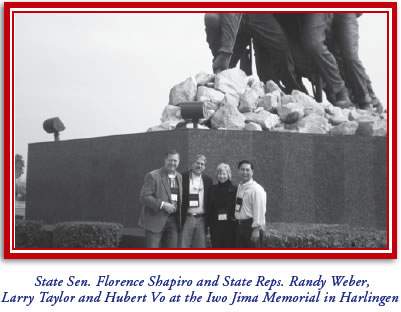
At every stop leaders pointed out the positive aspects of lawsuit reform in South Texas. In Harlingen, Jim Estham, President and CEO of Valley Baptist Health System, noted the increased access in healthcare since the passage of medical liability reforms that TLR supported in 2003.
Texas has licensed 14,496 new physicians in the four years since the reforms were passed including 189 new doctors in the Rio Grande Valley. Those new doctors equate to 189 new businesses that are providing jobs to Valley residents as well as much needed care to a growing population. Statewide, new doctors represent an opportunity for 11,000,000 more patient visits annually.
In Brownsville, Port Director Eddie Campirano provided an update on new projects at the Port of Brownsville, many of which would not have been possible without the passage of HB 1602 in 2007. TLR worked with lawmakers to pass that legislation in the last legislative session. It closed a loophole in the state’s venue law that had resulted in an avalanche of abusive lawsuits against the dredgers who keep Texas ports and waterways open.
- TLR ’s Ladies of the Legislature EventTLR hosted its second biennial Ladies of the Legislature Event in Austin. This event, held in honor of the Women of the Legislature, attracted 285 women members and staff who enjoyed an evening of relaxation and networking. The event, held at the beginning of the Legislative Session, provides an opportunity for the women who work in the Legislature to check-in with their colleagues before the hectic work of lawmaking begins. Beginning a legislative session with more women in the State Legislature than ever before in the State’s history, TLR’s “Ladies of the Legislature” event is becoming known as “the best legislative event of the year,” by many women lawmakers and staff.
- TLR in New Orleans & ChicagoThe debate on lawsuit reform rages across the nation, as well as in Texas. Last summer, TLR Executive Director Mary Tipps traveled to the National Conference of State Legislators in New Orleans and she and TLR President Dick Trabulsi attended the American Legislative Exchange Conference in Chicago. They met with state lawmakers and others from around the country to discuss the TLR model for reform and other lawsuit issues. TLR hosted a luncheon for Texas legislators in New Orleans.
- TLR in the Rio Grande ValleyTLR was honored to participate in the annual legislative tour of the Rio Grande Valley sponsored by the Rio Grande Valley Citizens Against Lawsuit Abuse (CALA) and the Rio Grande Valley Partnership. Dozens of lawmakers participated in the four day tour that included Harlingen, Brownsville, Port Isabel and South Padre Island. Representatives from Rio Grande Valley businesses, hospitals and universities led the tour and made presentations.

At every stop leaders pointed out the positive aspects of lawsuit reform in South Texas. In Harlingen, Jim Estham, President and CEO of Valley Baptist Health System, noted the increased access in healthcare since the passage of medical liability reforms that TLR supported in 2003.
Texas has licensed 14,496 new physicians in the four years since the reforms were passed including 189 new doctors in the Rio Grande Valley. Those new doctors equate to 189 new businesses that are providing jobs to Valley residents as well as much needed care to a growing population. Statewide, new doctors represent an opportunity for 11,000,000 more patient visits annually.
In Brownsville, Port Director Eddie Campirano provided an update on new projects at the Port of Brownsville, many of which would not have been possible without the passage of HB 1602 in 2007. TLR worked with lawmakers to pass that legislation in the last legislative session. It closed a loophole in the state’s venue law that had resulted in an avalanche of abusive lawsuits against the dredgers who keep Texas ports and waterways open.
- TLR ’s Ladies of the Legislature EventTLR hosted its second biennial Ladies of the Legislature Event in Austin. This event, held in honor of the Women of the Legislature, attracted 285 women members and staff who enjoyed an evening of relaxation and networking. The event, held at the beginning of the Legislative Session, provides an opportunity for the women who work in the Legislature to check-in with their colleagues before the hectic work of lawmaking begins. Beginning a legislative session with more women in the State Legislature than ever before in the State’s history, TLR’s “Ladies of the Legislature” event is becoming known as “the best legislative event of the year,” by many women lawmakers and staff.
- TLR in New Orleans & ChicagoThe debate on lawsuit reform rages across the nation, as well as in Texas. Last summer, TLR Executive Director Mary Tipps traveled to the National Conference of State Legislators in New Orleans and she and TLR President Dick Trabulsi attended the American Legislative Exchange Conference in Chicago. They met with state lawmakers and others from around the country to discuss the TLR model for reform and other lawsuit issues. TLR hosted a luncheon for Texas legislators in New Orleans.
Rep. Linda Harper-Brown Receives TLR’s Civil Justice Leadership Award
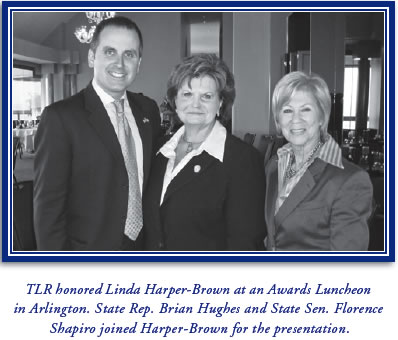
On September 10th, TLR’s Political Action Committee honored State Rep. Linda Harper-Brown, R-Irving, with the Civil Justice Leadership Award for her support of legislation to improve medical liability and civil justice laws in Texas.
“Rep. Harper-Brown’s strong commitment to lawsuit reform in Texas has helped boost our state’s economy and ensure that doctors are not forced to flee the state because of high medical liability costs,” said TLR President Dick Trabulsi. “Passage of important legislation to reform our civil justice system would not have been possible without the support of Rep. Harper-Brown and other members of the Texas House and Senate.”
Speaking to a packed house in Irving, Rep. Harper-Brown said the work of the Legislature to reduce the number of meritless lawsuits is paying off for the State of Texas. “Medical malpractice rates in the state have fallen nearly 40 percent since these reforms, and we’ve restored a competitive insurance industry, with over 30 companies competing for business in Texas,” said Rep. Harper-Brown who added that one of the largest malpractice insurance companies here cut its premiums saving doctors some $217 million over the past four years.
Joined at the event by State Sen. Florence Shapiro, R-Plano, State Sen. Chris Harris, R-Arlington and Rep. Brian Hughes, R-Mineola, Rep. Harper-Brown said that lawsuit reforms that have been enacted have stopped ruinous lawsuits that were stifling business growth and increasing the price of goods and services.
“We are attracting professionals and business from other states at a rate that echoes the great 19th Century exodus to Texas when suffering Americans from all over the South and Midwest closed up their homes and business and displayed the simple lettering “G.T.T.” …gone to Texas,” she said.

